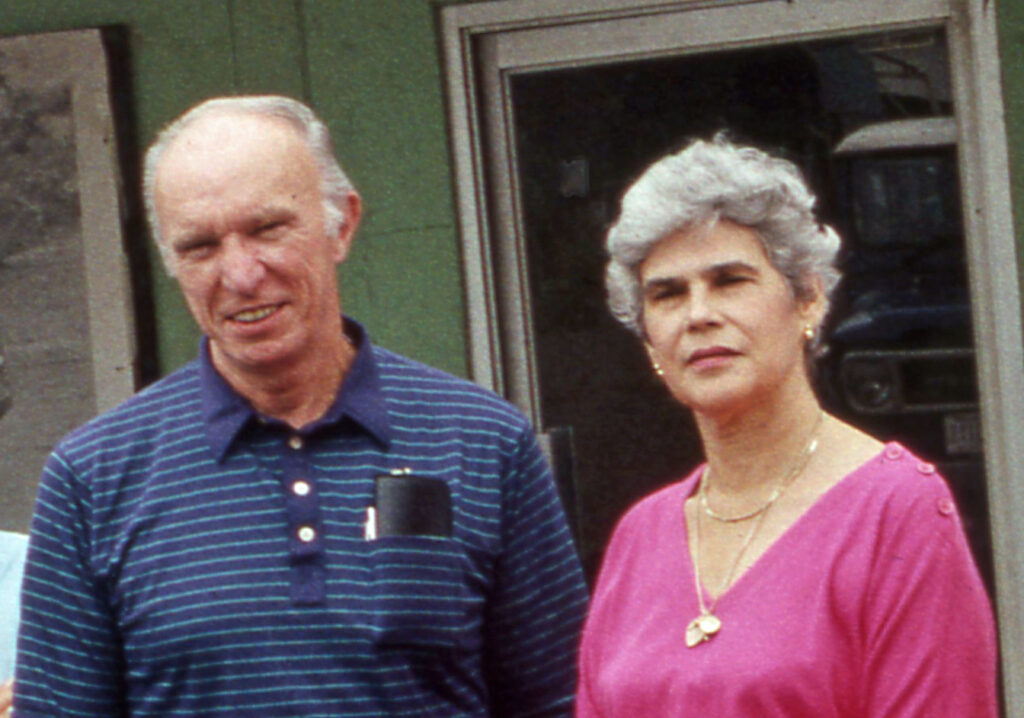
Tom Donahue with Nicaraguan democratic opposition leader and presidential candidate Violeta Chamorro (1987). Credit: David Jessup
Thomas R. Donahue, the second in command to Lane Kirkland, president of the A.F.L.-C.I.O. for 16 years, died on Saturday in Washington, D.C. He was 94. He was suffering from several health issues and was hospitalized on Thursday after a fall, his wife, Rachelle Horowitz,* told The Times.
“Tom was an innovator, intellectual and a visionary labor leader who was ahead of his time, AFL-CIO President Liz Shuler and Secretary-Treasurer Fred Redmond said in a statement:
Long before the future of work and the impact of technology on workers became a robust policy debate, Donahue was creating a blueprint for unions that encouraged experimentation with new approaches and technology to expand worker organizing and increase the labor movement’s influence. That blueprint served as a guide that still influences union innovation today.
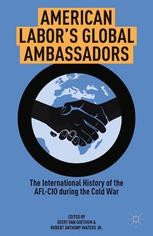 Indeed, Donahue’s influence “extended well beyond our nation’s borders,” the AFL-CIO adds, noting that he served as chairman of the State Department’s advisory committee on labor diplomacy with secretaries of state Madeline Albright and Colin Powell, “ensuring the link between anti-democratic movements and worker oppression was clear to leaders here and abroad.”
Indeed, Donahue’s influence “extended well beyond our nation’s borders,” the AFL-CIO adds, noting that he served as chairman of the State Department’s advisory committee on labor diplomacy with secretaries of state Madeline Albright and Colin Powell, “ensuring the link between anti-democratic movements and worker oppression was clear to leaders here and abroad.”
In prescient comments which anticipated the problems of democratic consolidation in post-Communist states, Donahue observed that “the fall of totalitarianism does not create democracy.”
“I think it’s a delusion to believe that just because there are no longer dictators in X number of states or that the Communist system has died that democracy will flourish. It won’t. It needs to be assisted and supported in every possible way,” he said.
Democracy lost a great champion with the death of Thomas Donahue, said the National Endowment for Democracy (NED), highlighting his remarkable life as a labor leader and former NED Board Vice Chair.
“We join our brothers and sisters in the labor movement, the NED and Solidarity Center families, and his family and friends, in mourning and celebrating Tom Donahue,” said Damon Wilson, NED president and chief executive officer. “We honor his principled commitment to inclusive democracy and justice around the world.”
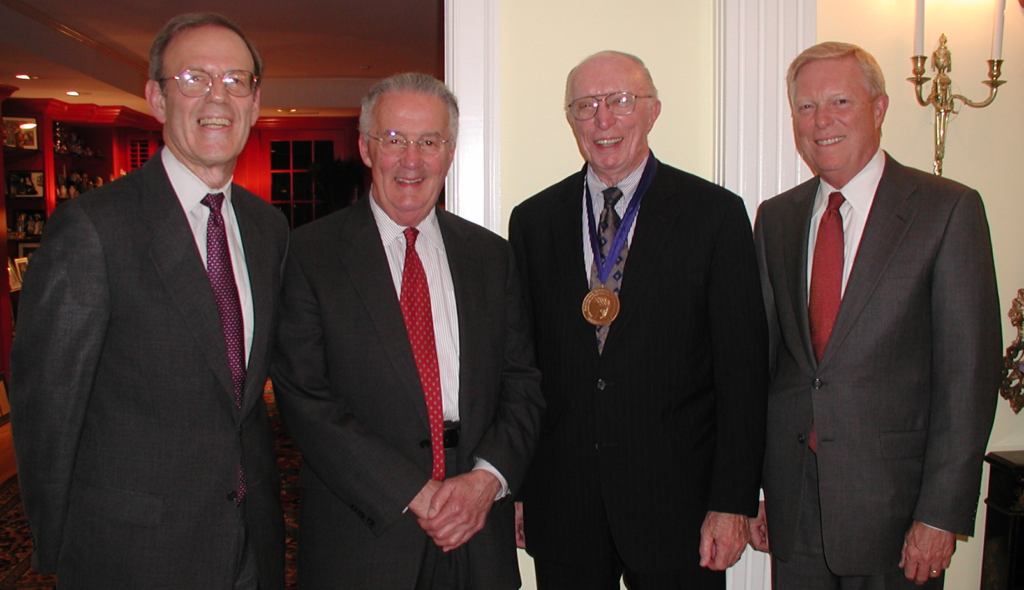 Donahue served on the NED board for ten years between 1997 and 2006, and was honored with the NED’s Democracy Service Medal at a St. Patrick’s Day ceremony (above) attended by then NED President Carl Gershman, Senator Paul Sarbanes (D-MD), and former House Democratic Leader Richard Gephardt.
Donahue served on the NED board for ten years between 1997 and 2006, and was honored with the NED’s Democracy Service Medal at a St. Patrick’s Day ceremony (above) attended by then NED President Carl Gershman, Senator Paul Sarbanes (D-MD), and former House Democratic Leader Richard Gephardt.
“Tom Donahue was a valued member of NED’s Board of Directors for nearly a decade,” said Kenneth Wollack, NED Board chairman. “He was deeply committed to workers’ rights at home and abroad, and he was a passionate advocate for those struggling against tremendous odds to advance and defend freedom and democracy in every region of the world. Most important, Tom was known by friends and colleagues for his integrity, decency, and empathy. We will always honor his legacy.”
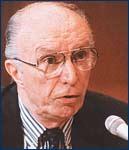
Credit: AFL-CIO
Tom embodied and proudly carried forward the historic commitment of the American labor movement to workers’ rights, free trade unions, and universal democracy, said former NED President Gershman:
He never wavered in his support for workers battling against oppression, including in ruthless tyrannies like Cuba that tried to hide their inhumanity beneath a cloak of lies. He was a worthy successor to Lane Kirkland and Al Shanker as a leader on the NED board and was beloved and respected by everyone who worked with him. He was a true gentleman, as principled and courageous as he was modest and decent. May his memory be a blessing to his friends, and may his legacy of service and selflessness continue to enrich the world.
Donahue was a natural in the favor trading and bridge building of retail politics. He had insider credentials from heading labor-management relations as an assistant labor secretary from 1967 to 1969 under President Lyndon B. Johnson, who was urged by AFL-CIO leader George Meany to pick Mr. Donahue for the job, The Post adds:
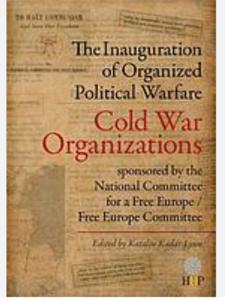 Mr. Donahue also could show off the street-smart gruffness of his Bronx roots, impress religious leaders with his grounding in Catholic social teachings or, when needed, turn on his internationalist poise from his years in Paris in the late 1950s overseeing labor-related projects for Radio Free Europe and the Free Europe Committee.
Mr. Donahue also could show off the street-smart gruffness of his Bronx roots, impress religious leaders with his grounding in Catholic social teachings or, when needed, turn on his internationalist poise from his years in Paris in the late 1950s overseeing labor-related projects for Radio Free Europe and the Free Europe Committee.
Relentless foe of totalitarianism
“The American labor movement has always been involved with the well-being of workers in other lands,” Donahue wrote in a 2000 letter to Foreign Affairs. “In more than 50 countries [after World War II], the AFL-CIO helped workers develop independent unions to protect and advance their interests, both on the job and in civil society. It was a relentless foe of all forms of totalitarianism. It had and still has only one test by which to judge a nation: Is a free and democratic union movement allowed to function there?”
He helped lead organized labor’s support for Poland’s independent trade union Solidarnosc in the 1980s, working with the Free Trade Union institute, a NED core institute since renamed as the Solidarity Center. A free trade union movement is “the critical measure of democracy,” Donahue insisted.
 He testified before Congress in support of disinvestment and other forms of opposing apartheid on three occasions. New York Times columnist Anthony Lewis wrote in 1984 that Americans “have begun to feel a responsibility for helping to bring the cruelty of [South African racism] to an end.” The only one of the “members of Congress and other political and community leaders have picketed and deliberately invited arrest by walking across police lines,” to be mentioned by name was Donahue, who “said it was time to boycott South African imports and, if necessary, to prohibit U.S. investment in South Africa.”
He testified before Congress in support of disinvestment and other forms of opposing apartheid on three occasions. New York Times columnist Anthony Lewis wrote in 1984 that Americans “have begun to feel a responsibility for helping to bring the cruelty of [South African racism] to an end.” The only one of the “members of Congress and other political and community leaders have picketed and deliberately invited arrest by walking across police lines,” to be mentioned by name was Donahue, who “said it was time to boycott South African imports and, if necessary, to prohibit U.S. investment in South Africa.”
Organized labor’s engagement with the anti-apartheid movement was also a learning experience in terms of understanding democratic transitions and anticipating post-transitional challenges.
“There were, I think, some missteps in South Africa in terms of where we were going, but they were well-intentioned missteps,” Donahue conceded in a 1997 interview with the Library of Congress. “There were questions of judgment about from which quarter a democratic force was going to emerge in the post-apartheid South Africa.”
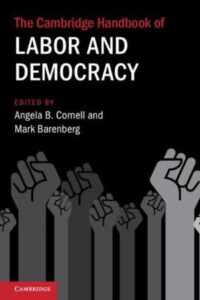 “But those were years in which the Federation spent a good bit of its substance and the time of its officers in international affairs in what I believe was the most selfless fashion trying to assist workers abroad,” he said, adding that “those were years when we were heavily engaged with democratic trade union forces throughout the developing world and in the then- Communist world.”
“But those were years in which the Federation spent a good bit of its substance and the time of its officers in international affairs in what I believe was the most selfless fashion trying to assist workers abroad,” he said, adding that “those were years when we were heavily engaged with democratic trade union forces throughout the developing world and in the then- Communist world.”
Prescience
As Chair of the Committee for Free Trade Unionism, he was a forceful advocate of independent labor unions in Cuba and criticized Western unions’ engagement with the Communist regime’s state-run transmission-belt organizations.
He wrote that the committee supports “the right of Freedom of Association – the right [of workers] to form and join unions of their own choosing, run by people they elect.” The CFTU’s purpose was “to assist workers in Cuba struggling to assert that right – in the face of their government’s insistence that only one union, guided by the Communist Party, can represent them, and against the background of continuing imprisonment and harassment of those who think otherwise.”
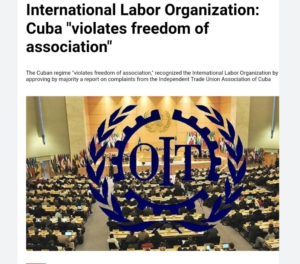 “Either you stand on the side of democratic forces or you don’t,” he said. “And you have to have some standard by which to judge whether something is a free and democratic trade union or it’s not.”
“Either you stand on the side of democratic forces or you don’t,” he said. “And you have to have some standard by which to judge whether something is a free and democratic trade union or it’s not.”
A Bronx janitor’s son, Mr. Donahue worked as a baker, a bus driver, a merchant seaman and a doorman at Radio City Music Hall and later became a lawyer, an assistant secretary of labor in Washington and one of the most influential leaders of the postwar trade union movement, The Times notes:
He worked in Paris from 1957 to 1960 for the Free Europe Committee, an American labor program that aided union exiles from Communist countries. On returning, he became an aide to the president of the Service Employees International Union for seven years, moving to Washington in 1963. He was an assistant secretary of labor in the Lyndon B. Johnson administration from 1967 to 1969.
Donahue argued that when it comes to attracting new members, the AFL-CIO needs to change its emphasis from simple militancy to a more nuanced approach, his former colleague Phil Fishman observed in The American Interest. Most American workers in the new economy want “respect, decent work opportunities and education opportunities and advancement, rather than marching and demonstrating….Prospective members in most industries don’t want to join the union to go to war”, Donahue said.
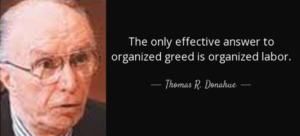 The New York Times described Donahue’s 1985 report on The Changing Situation of Workers and Their Unions as “the first of its type in the history of the nearly 35-year-old AFL-CIO,” while American Federation of Teachers president Albert Shanker described it as “a revolutionary document.” His vision ultimately laid the groundwork for innovations that shaped organized labor’s response to a post-industrial s, including:
The New York Times described Donahue’s 1985 report on The Changing Situation of Workers and Their Unions as “the first of its type in the history of the nearly 35-year-old AFL-CIO,” while American Federation of Teachers president Albert Shanker described it as “a revolutionary document.” His vision ultimately laid the groundwork for innovations that shaped organized labor’s response to a post-industrial s, including:
- Union Privilege, which today offers an array of Union Plus consumer benefits to union members and retirees, including mortgage assistance, credit cards with provisions for laid-off and striking workers, supplemental Medicare insurance, and discounts on vision and dental care; and,
- Working America, the AFL-CIO’s community affiliate for “workers without the benefit of a workplace union” who support “good jobs, affordable health care, world-class education, secure retirements, real homeland security and more” and are eligible for Union Plus benefits.
- The AFL-CIO Organizing Institute (OI) launched in 1989. “One of my proudest accomplishments as AFL-CIO secretary-treasurer was our creation of the AFL-CIO Organizing Institute to recruit and train organizers,” he said in 1995.
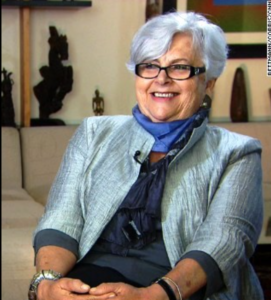
Credit: AFT
Mr. Donahue’s marriage to Natalie Kiernan ended in divorce, The Post adds. A son from their marriage, Thomas R. Donahue III, died in 2018. In addition to his wife, of Washington, survivors include a daughter from his first marriage, Nancy Donahue of Annandale, Va.; and six grandchildren.
*In 1979, Tom married Rachelle Horowitz (right), a close associate of civil rights leader Bayard Rustin and one of the socialists who ‘made’ the landmark 1963 March on Washington. She later served as Political Director for the American Federation of Teachers and as a board member of the National Democratic Institute (NDI).
R.I.P. #TomDonahue – committed labor leader, internationalist and genuine mensch – former @NEDemocracy board member. https://t.co/ClaPEUEmsC
— Democracy Digest (@demdigest) February 21, 2023







